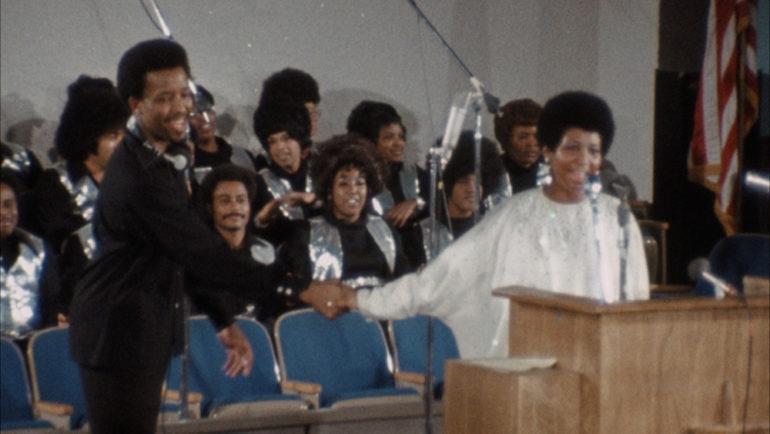‘Amazing Grace’ Producer Says She Was Not Paid for Years of Work (EXCLUSIVE)
By Gene Maddaus
LOS ANGELES (Variety.com) – After 47 years, the Aretha Franklin concert documentary “Amazing Grace” finally arrives in theaters Friday. Alan Elliott has told the story of how he rescued the unreleased footage from the Warner Bros. vault, had it restored and assembled, and then spent years negotiating with Franklin and her estate to secure the film’s release.
But absent from that story is producer Chiemi Karasawa, who alleges that she played a critical role in bringing the film to screen and has not been paid for her work.
Karasawa recently filed an arbitration case against Elliott, alleging that she is owed a producer fee and other compensation for years of work on the project. Among other things, she says she arranged to retrieve the footage and process it, oversaw the editing of the film, and set up screenings for industry figures that ultimately led to its theatrical release.
“I have not been paid a dime of my Producer Fee or the amounts that I am entitled to contractually,” she told Variety in an email. “I’m saddened that it’s come to this point, but thrilled that the film is being released for a public audience where it belongs.”
Elliott did not respond to repeated requests for comment. His attorney, Vincent Cox, declined to comment, except to say, “The dispute is going to be resolved through arbitration.”
“” documents Franklin’s two performances at the New Temple Missionary Baptist Church in Watts, in January 1972. A live album was released later that year on Atlantic Records and went double platinum. Director Sydney Pollack filmed the performances, but the film was never released due to technical problems and various other hurdles. Elliott has said in interviews that he first heard about the unreleased footage when working at Atlantic in 1990. In 2007, he says he got Pollack’s blessing to acquire the film from Warner Bros.
Karasawa is a documentary producer. She said she was introduced to Elliott in 2010, and signed a deal to help produce the film the following year. In an email to Variety, she said she arranged with the studios to retrieve the 16mm footage, and persuaded a lab to sync and digitize the footage before funds had been raised to pay for the film.
“Chiemi really made everything happen,” said Charles Hobson, a documentary producer who introduced her to Elliott. “I know she got the production house in L.A. She deserves a lot of the credit.”
Karasawa told Variety that she developed a budget for the production and hired editor Jeff Buchanan, who assembled the film. She said she supervised the editing at Final Cut in New York from April to July 2011, while Elliott was in Los Angeles.
Stephanie Apt, the president of Final Cut, confirmed that Karasawa hired the editor, and said she was the principal contact on the project at the time.
“She was here (at Final Cut) throughout the edit,” Apt wrote in an email. “She was most definitely heavily involved in supervising the editing of the film.”
Karasawa said that she and Buchanan edited a trailer to be used in fundraising, and that she traveled to the Cannes Film Festival in an effort to drum up investment in the project. While there, she said she ran into Tom Quinn, then head of acquisitions at Magnolia Pictures, and pitched him on the project. Quinn would go on to found Neon, which acquired the film for domestic distribution last year.
Karasawa said she also hosted screenings of the film for industry figures in 2011 and 2012, and that those contacts ultimately led to the film premiering at the DOC NYC festival last fall. Thom Powers, the artistic director of the festival, confirmed that he first learned of the project from her.
“ is a producer I’ve had a long-time professional relationship with and I have the highest respect for her integrity and commitment to all the projects she’s worked on,” Powers said.
At some point, the relationship between Karasawa and Elliott broke down, though the circumstances are in dispute. She told Variety that she did not quit the project, and that she performed all the obligations under her contract. She said she was most active on the project from 2011 through 2015. She said she could not discuss the matter in further detail due to the confidential arbitration.
Franklin sued Elliott twice to block release of the film, first in 2011. In 2015, he attempted to show it at the Telluride Film Festival, but Franklin’s lawyers got an injunction to stop the screening. Franklin died in August, and her estate and Elliott announced in November that they had reached an agreement to distribute the film.

